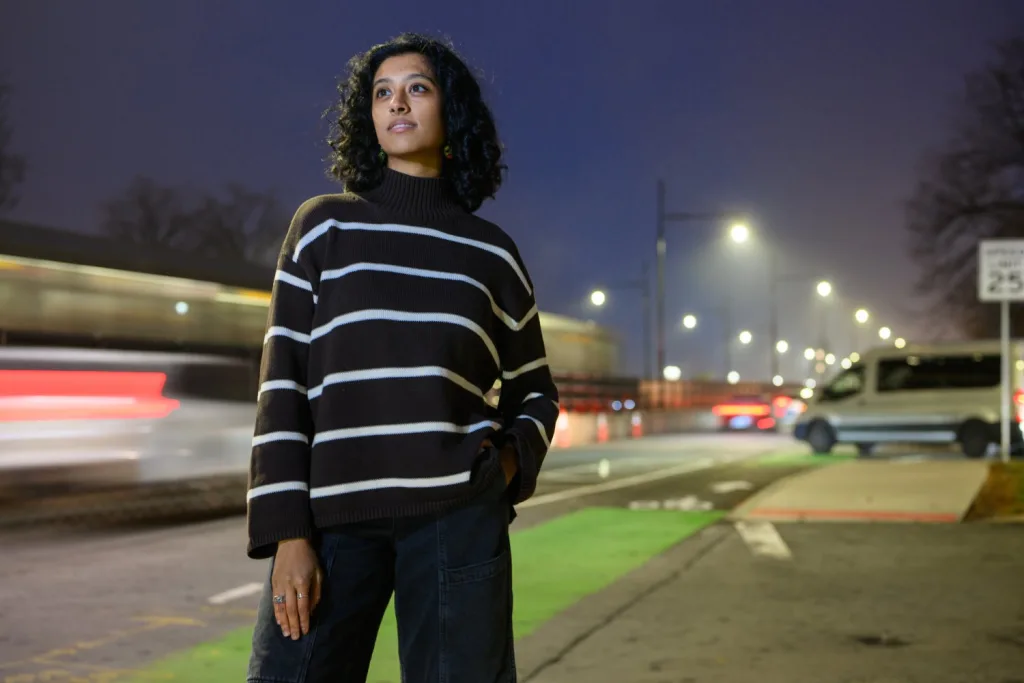Shreyaa Raghavan’s compelling journey to tackle some of the globe’s most pressing challenges ignited from her childhood love for puzzles. In high school, her natural aptitude for problem-solving led her to discover computer science. Through her involvement in an entrepreneurship and leadership program, she developed applications and reached the semifinals of the global competition twice.
Although her early accomplishments made a career in computer science an obvious path, Raghavan faced a significant internal conflict.
“Computer science ignites that puzzle-solving segment of my brain,” explains Raghavan ’24, an Accenture Fellow and PhD candidate at MIT’s Institute for Data, Systems, and Society. “Yet, while building mobile apps felt like an enjoyable side project, I longed for a way to directly address societal issues.”
Her outlook transformed during her undergraduate studies at MIT when she got involved with the Photovoltaic Research Laboratory, now called the Accelerated Materials Laboratory for Sustainability. Here, Raghavan realized how computational techniques, including machine learning, could enhance materials for solar energy systems — a direct opportunity to apply her expertise in the fight against climate change.
“This lab brought together a diverse group of individuals: some from computer science, others from chemistry, and even seasoned engineers. Everyone communicated effectively, all striving towards a shared mission — creating improved renewable energy solutions,” Raghavan asserts. “It showed me that I could channel my enthusiasm for technical tools into addressing vital climate issues.”
Driven by her commitment to harnessing machine learning and optimization for energy and environmental sustainability, Raghavan joined Cathy Wu’s lab upon the commencement of her PhD in 2023. This lab concentrates on developing more sustainable transportation systems, an area that resonated with Raghavan given its significant environmental impact — transportation contributes roughly 30 percent of greenhouse gas emissions.
“If we were to implement all the intelligent systems we’re investigating within the transportation network, to what extent could we curb emissions?” she poses, encapsulating one of the central themes of her research.
Wu, an associate professor in the Department of Civil and Environmental Engineering at MIT, underscores the significance of Raghavan’s research.
“Transportation is vital for both our economy and environmental health, so any changes made to this sector need to be rigorously examined,” Wu states. “Shreyaa’s work on smart congestion management adds a data-driven dimension that enhances the overall research supporting sustainability.”
Raghavan’s outstanding contributions have earned her the Accenture Fellowship, a pivotal component of the MIT-Accenture Convergence Initiative focused on Industry and Technology.
As an Accenture Fellow, she explores the potential of technologies designed to mitigate stop-and-go traffic and its associated emissions. This encompasses systems such as networked autonomous vehicles and adaptive digital speed limits that adjust in real-time based on traffic density — innovative solutions poised to facilitate decarbonization in transportation, both economically and expediently.
Raghavan appreciates the Accenture Fellowship not just for its support, but also as a testament to industry engagement in sustainable transportation initiatives.
“Collaborating with various stakeholders is crucial for the success of advancements in transportation, energy, and climate as a whole,” she explains. “Involving industry players is vital for fostering smarter transportation systems aimed at reducing transportation-related emissions.”
Additionally, Raghavan has received a fellowship supporting her research from the U.S. Department of Transportation.
“It’s encouraging to see interest from both the policy side, with the Department of Transportation, and industry, represented by Accenture,” she notes.
Raghavan firmly believes that combating climate change necessitates interdisciplinary collaboration. “With climate change, no single industry can tackle this issue alone. Each sector must rise to the occasion and contribute,” she expresses. “There isn’t a one-size-fits-all solution. It will require various approaches from diverse fields.”
With this collaborative spirit in mind, Raghavan has taken an active role in the MIT Energy and Climate Club, which she joined three years ago. “It’s been an incredible way to connect with people who share the same climate ambitions but come from entirely different backgrounds,” she remarks.
This year, she serves on the community and education team, dedicated to fostering a community at MIT focused on energy and climate issues. Raghavan is also launching a mentorship program aimed at pairing undergraduate students with graduate mentors to help them explore how to apply their unique skills in addressing climate challenges.
“I never expected to utilize my computer science skills in the energy and climate sector,” Raghavan admits, “so I am eager to help other students navigate their pathways toward involvement.”
Her affinity for her area of study extends to her preferred working environment. “I thrive on trains, buses, and airplanes,” she confesses. “It’s exhilarating to tackle transportation challenges while in transit.”
As she anticipates a train trip to New York to visit a relative, she embraces the journey ahead. “I know I’ll produce some of my best ideas during those hours — four hours there, and four hours back,” she smiles.
Photo credit & article inspired by: Massachusetts Institute of Technology



